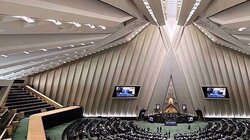Condition for the continuation of the ceasefire between Iran, Israel

In Tehran's belief, the comprehensive report of Rafael Grossi, Director General of the International Atomic Energy Agency, to the last meeting of the Board of Governors of this institution was the objective and subjective basis for the military aggressions of Israel and the United States against Iran's territorial sovereignty.
Therefore, Tehran says; the nuclear agency, by abandoning its main task, which is necessarily "technical" and "impartial" in nature in monitoring the nuclear activities of countries, has replaced it with a political and biased approach to Western strategies regarding Iran. This situation is an indication of the intensification of the battle of wills between the two sides of the conflict, which we witnessed reaching the "point of confrontation" in the Twelve-Day War.
Now, these questions are prominent: how is the new situation defined despite the establishment of a ceasefire in the aforementioned war? What dangers could threaten the current calm following the cessation of hostilities? And if Washington truly insists on insisting on the continuation of the ceasefire and reaching an agreement with Tehran, what mechanism will it put on the agenda to reduce the intensity of suspicions? This is while Tel Aviv is prone to sabotage the current calm in an elusive way at any moment. In this case, can Tehran commit itself to a ceasefire that the other side is violating?
In the conflict of the twelve-day war, Tehran increased the speed of diplomacy and took the initiative to control the situation and create a point of balance in the positions between Tehran and Europe - the United States. In fact, the establishment of a ceasefire in the war can be considered the product of a large part of Tehran's diplomatic efforts in this regard. Washington also showed a show of peace by welcoming diplomacy.
But is Washington capable of reducing the scope of Tehran’s suspicions? Can Tehran be satisfied with Washington’s promises or trickle-down concessions, while demanding big concessions from it? Is the Islamic Consultative Assembly’s motivation in approving the suspension of cooperation with the International Atomic Energy Agency other than the fact that Tehran’s distrust of the West’s intentions has grown stronger and shows no sign of abating? Therefore, the ball is now in the West’s court; if it is truly about finding a balance point to reach an agreement, it is the West that should take the necessary initiatives to create confidence or reduce the severity of Tehran’s suspicions.
Tehran showed in the experience of the recent imposed war that despite the damage its enemies inflicted on the country, it is both capable of inflicting reciprocal damage on them and, relying on the national cohesion created in the struggle of the war, has the military and moral ability to resist the aggressive excesses of its enemies.
This is illustrated by Washington’s retreat from its claim of regime change in Iran and the need to return to diplomacy. But a successful return to diplomacy requires initiatives that can provide a clear and reliable perspective to the parties. The ceasefire could be fragile if the West fails to provide the necessary solution in this regard.
End Article




